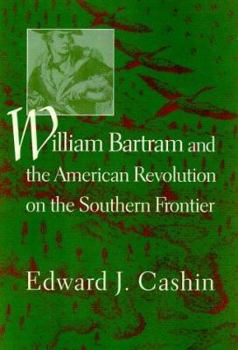William Bartram and the American Revolution on the Southern Frontier
Select Format
Select Condition 
Book Overview
In Travels, the celebrated 1791 account of the "Old Southwest," William Bartram recorded the natural world he saw around him but, rather incredibly, omitted any reference to the epochal events of the... This description may be from another edition of this product.
Format:Hardcover
Language:English
ISBN:1570033250
ISBN13:9781570033254
Release Date:January 2000
Publisher:Univ of South Carolina Pr
Length:448 Pages
Weight:1.50 lbs.
Dimensions:9.5" x 1.3" x 6.5"
Customer Reviews
1 rating
Best Bartram Commentary Since Harper
Published by Thriftbooks.com User , 25 years ago
Attempting to figure out where William Bartram went during his famous travels can make one very irritable. Cashin's book puts you solidly in the old wanderer's boot tracks. The wealth of historical detail brings to life the places Bartram went, the people he met, and the times in which he lived. An indispensable book for the serious student of Bartram.






